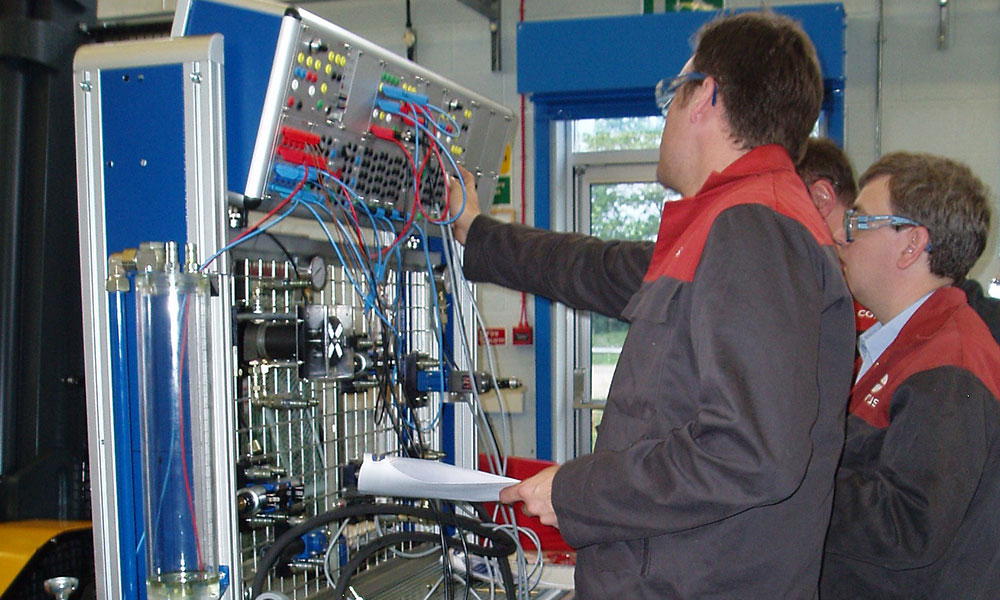Stage 1 Introduction to Proportional Hydraulics
£350 + VAT per person
1 DAY COURSE
Before booking any of these courses you should:
- Check the Course Planner & Progression Route
- Complete the online self-assessment here
Is this the correct course for you based on your results? Please read the course information below, or feel free to contact us if you have any questions.
1 DAY COURSE
Before booking any of these courses you should:
- Check the Course Planner & Progression Route
- Complete the online self-assessment here
Is this the correct course for you based on your results? Please read the course information below, or feel free to contact us if you have any questions.
This Stage 1 course will provide a basic introduction to Proportional Hydraulics. Providing a foundation of knowledge for those wishing to advance to the Stage 2, 3 day, Proportional Hydraulics Course here at the NFPC.

Course Introduction
We welcome you to attend our COURSES at THE NATIONAL FLUID POWER CENTRE presented by NFPC Training Engineers with a vast knowledge and experience involved in the maintenance and management of FLUID POWER SYSTEMS.
Course Details
£350 per person excluding VAT
Face to face training at the NFPC will consist of 1 Day of technical lectures
Please check availability with Anne Clarke at NFPC Tel: 01909504539 or aclarke@nfpc.co.uk
Entry Requirements:
You can only book this course if you have completed a Stage 1 hydraulics course or if the relevant pass mark has been obtained on our self-assessment courses.
Course Times
9am – 4pm or as arranged by the Tutor.
Candidates will receive a comprehensive set of course notes and a certificate of attendance
Course Aims
This introductory level course will improve your understanding of Proportional Hydraulics giving you an overview of the component parts and terminology used.
Course Objectives
KNOWLEDGE BASED:
On completion of this course candidates will understand:
1) Describe the physical differences between a proportionally controlled valve and a switching (or “bang-bang”) type valve.
2) Know how proportional, flow and pressure valves are constructed
3) Know the difference between direct and pilot operated proportional valves
4) Know what ‘ramp up’ and ‘ramp down’ operations are
5) Have an overview of PWM and dither functions
6) Explain the functionality of the driver card (‘amplifier’)
7) Know the difference between Proportional, Servo proportional, Servo jet pipe and servo flapper valves
8) Know the operating speed differences on various types of Proportional control
9) Know why screened cable is essential when wiring a proportional system and the correct cable plugs
valves

